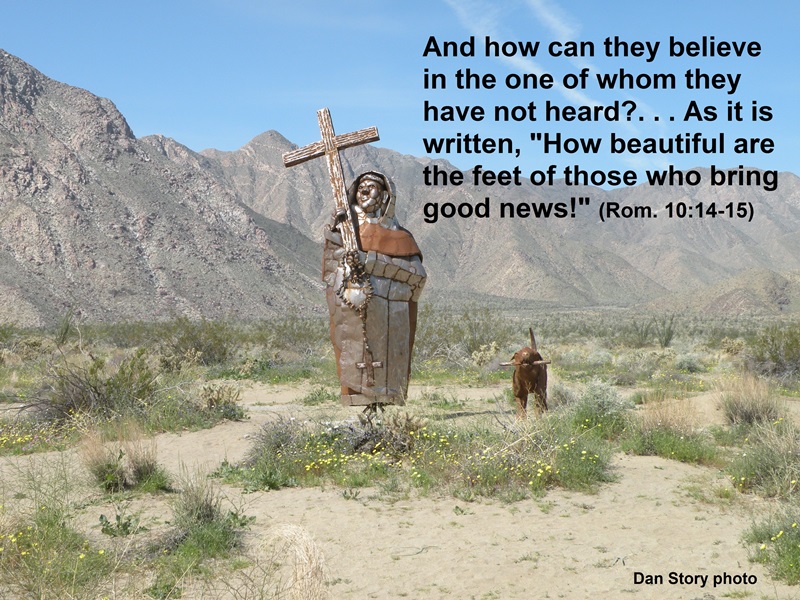
Number Seven: Improve your Apologetics and Evangelism by Applying Missionary Techniques
Apologetics and evangelism should include seeking unbelievers on their own turf. In this sense, both are missionary activities. The Apostle Paul implies this in the above photo caption.
In verses 15:20-21, he adds:
It has always been my ambition to preach the gospel where Christ was not known, so that I would not be building on someone else’s foundation. Rather, as it is written: “Those who were not told about him will see, and those who have not heard will understand.”
Paul reminds us in these two passages that (1) unbelievers must hear and receive the Gospel before they can be saved, and (2) Christian evangelists and apologists should seek “new territory.”
By whatever means necessary, Paul endeavored to make the Gospel relevant and applicable to unbelievers, regardless of their existing beliefs and customs. He set the example by seeking the Jews in the synagogues and Gentiles in the marketplaces and debating the Greek philosophers in pagan Athens (Acts 17). In 1 Cor. 9:19-22, Paul provides guidelines on how an apologist/ evangelist/missionary/ interacts with unbelievers to get a fair hearing for the Gospel. He writes:
Though I am free and belong to no man, I make myself a slave to everyone, to win as many as possible. To the Jews I became like a Jew, to win the Jews. To those under the law I became like one under the law (though I myself am not under the law), so as to win those under the law. To those not having the law [Gentiles] I became like one not having the law (though I am not free from God’s law but am under Christ’s law), so as to win those not having the law. To the weak I became weak, to win the week. I have become all things to all men so that by all possible means I might save some.
We, too, should be apologetic missionaries. Our neighborhoods, workplaces, and social clubs are fertile missionary fields. We can invite unbelievers to church, home Bible studies, and into our homes. Like Paul, we can leave our comfort zone and seek unbelievers in “new territory.” This may include door-to-door or street corner evangelism, college classrooms, New Age fairs, and open forum Bible studies designed specifically for unbelievers.
Our Goal in all cases is to present the Christian worldview by removing misconceptions about Christianity, answering tough questions, demonstrating the relevance of Christianity in a post-Christian world, and most important by sharing the life-changing power through a relationship with Jesus Christ. In sum, apologetics, as a species of evangelism and missionary work, means that we seek opportunities to share the Gospel and defend our faith, as Paul says, “in season and out of season” (2 Tim. 4:2).
Next week we’ll see the importance of knowing what we believe while at the same time knowing what unbelievers believe.
Note: To avoid missing my weekly blog posts, please join my private blog email list. Click on “contact” above and send me a request with your email address. I do not share email addresses.